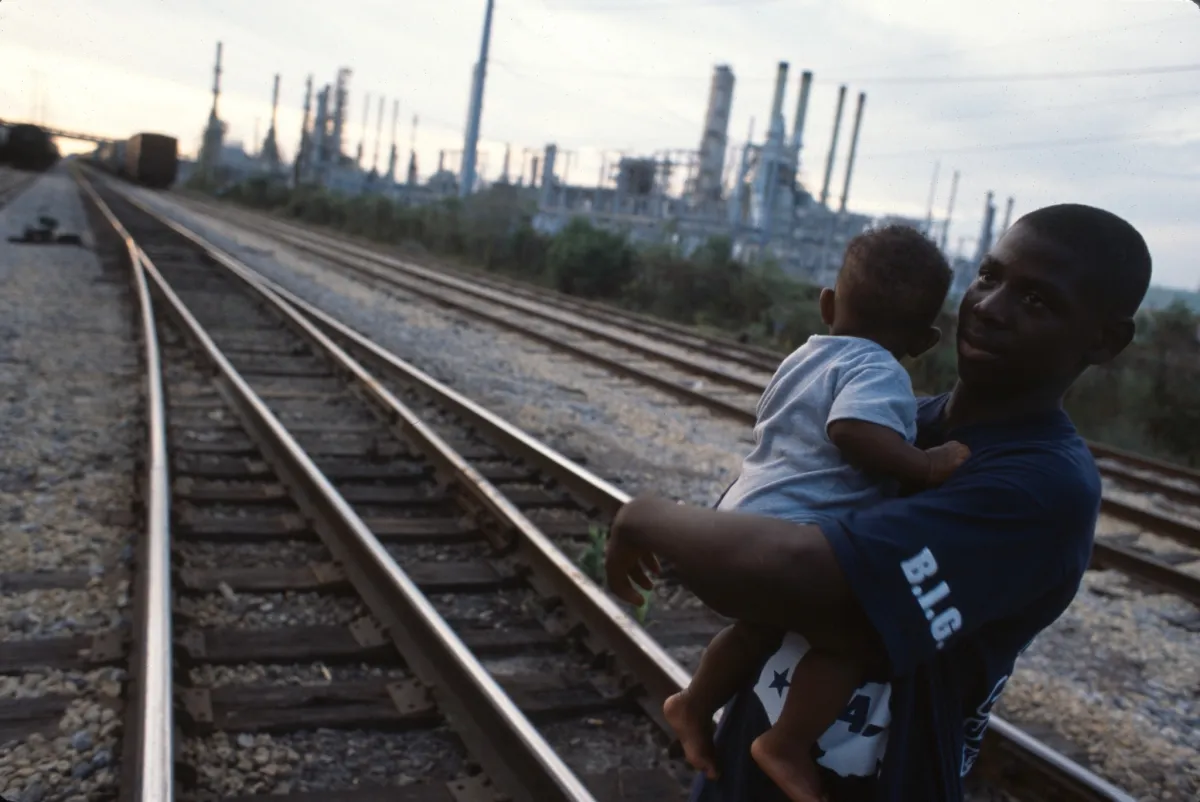By Willy Blackmore,
Word in Black
Last fall, the Environmental Protection Agency said something that many have long suspected to be true: an investigation of the Louisiana Department of Environmental Quality found “significant evidence suggesting that the Departments’ actions or inactions” have harmed the majority-Black communities in Cancer Alley, as the refinery- and petrochemical factory-laden stretch of the Mississippi River between New Orleans and Baton Rouge is widely known.
The investigation was dropped in June, however, after the state filed a lawsuit against the EPA. And now a draft copy of the agreement that EPA was negotiating with Louisiana, published by the Associated Press on Nov. 1, shows what might have been: an updated system for reviewing industrial emissions and approving new permits that would have required analysis of how pollution would impact people from different socioeconomic backgrounds who live nearby.
The EPA investigation was a rare application of Title VI of the Civil Rights Act, which is most often used to address discrimination in housing and transportation, but not environmental issues.
But the Biden administration had planned to expand the use of such Title XI investigations and “prioritize states where there are decades of civil rights complaints by Black and other communities of color against permitted pollution in their communities, such as Louisiana’s Cancer Alley and the Houston Ship Channel,” according to the recommendations from the White House Environmental Justice Advisory Council.
Now, the future of that strategy is unclear after Louisiana argued in its lawsuit that the new approach will “effectively transform the agency from one purely or largely concerned with environmental protection into a free-ranging, social-justice-warrior,” and that Title XI only applies to deliberate discrimination, not decisions that (as the state argued) inadvertently affect Black residents more than White residents.
But the reason why both the factories and the Black communities that live and suffer alongside them are there shows that none of this is by chance: the land that some of the facilities sit on, like the neoprene factory in Revere, Louisiana, were formerly plantations.
And, many of the communities in Cancer Alley were established by formerly enslaved people who were forced to work on those plantations. Today, Black residents in Cancer Alley are all but shut out from jobs at the refineries and other factories that pollute the air they breathe, but cancer rates are 12 to 16 percent higher in Black communities along that stretch of the river compared to White ones.
The draft document published by AP was just that — a working draft that would need to be agreed upon by both parties. And, the state had struck a number of provisions, such as appointing a new “scientific integrity official,” and the state agreeing to use “the best available science” to inform decisions around pollution permitting.
So while it likely wouldn’t shut down the neoprene factory in Revere — which is the last remaining one in the country after a similar plant in Kentucky was shuttered in 2008 due to concerns that it was polluting the nearby communities — any agreement would have been better than the current status quo.
An Oct. 16 letter to the EPA and the U.S. Department of Justice signed by dozens of individuals and organizations urged “the EPA and DOJ to follow through on the Biden-Harris Administration’s stated commitment to advance racial equity throughout the federal government.”
The letter points out the “Biden-Harris Administration has committed to advancing civil rights for communities long bearing the brunt of the cumulative impacts of racial segregation and extractive polluting,” and the EPA and DOJ have made similar commitments.
In practice, however, the letter’s authors wrote, EPA and DOJ are sending “a message to state and local agencies and other recipients of federal funds that they can continue to ignore their obligations under Title VI and avoid accountability for their discriminatory actions.” Indeed, since the EPA backed off of the Cancer Alley investigation, there was a gubernatorial election in Louisiana: the incumbent Democrat John Bel Edwards was defeated by Republican Jeff Landry, who was the state attorney general when Louisiana sued the EPA.


